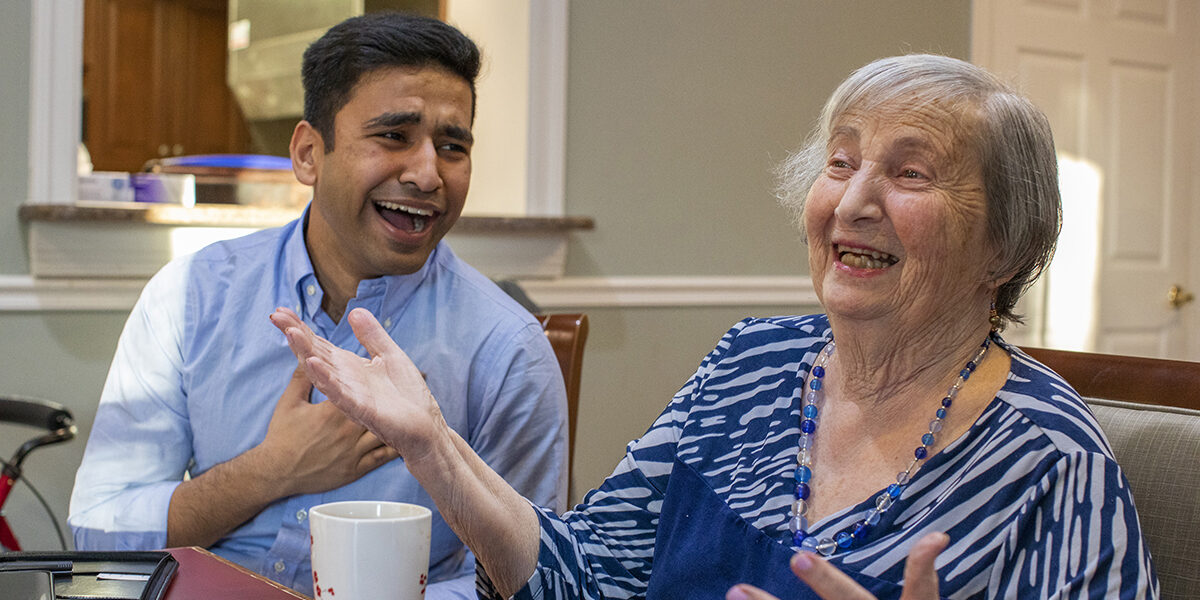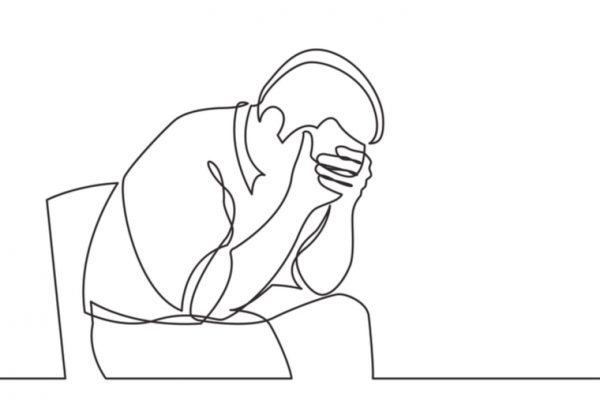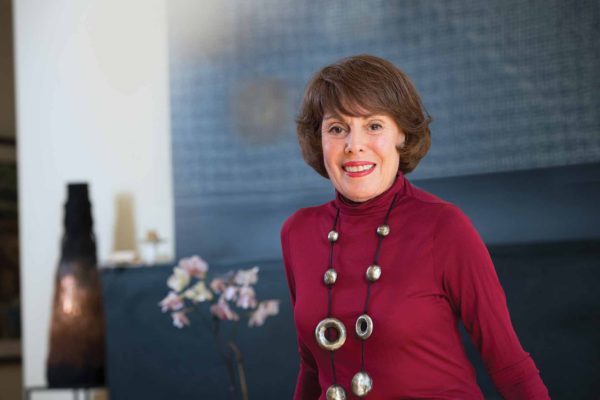The advice was simple and blunt: “Stop stressing out and focus on what you love.”
Washington University in St. Louis senior Harsh Moolani was skeptical. As a pre-med student, Moolani believed he needed to pack his resume with clubs, activities and academic accolades.
 Then he considered the source: a remarkable woman with a successful career, good friends — and a few months to live. The two had become close at a local hospice, where Moolani was a volunteer and she was dying of Parkinson’s disease.
Then he considered the source: a remarkable woman with a successful career, good friends — and a few months to live. The two had become close at a local hospice, where Moolani was a volunteer and she was dying of Parkinson’s disease.
“Of course, she was right,” said Moolani, who is set to graduate this month with a degree in neuroscience in Arts & Sciences. “That’s when I actually dropped everything and started to work with only organizations that work on different challenges in elderly care. Looking back, I think my conversations with her really influenced what I do now.”
Moolani went on to found Create Circles, a nonprofit organization that strives to reduce social isolation and cognitive decay by pairing young volunteers with older adults in long-term care facilities to produce creative projects such as articles, videos and podcasts.
“A lot of programs are about providing companionship, and that, certainly, is important,” said Moolani, whose team developed an extensive training guide and curriculum. “But we look to give them an opportunity to create after years of losing parts of themselves that are fundamental to their identity. We want to help craft a sense of purpose with them.”
One volunteer recorded videos of a resident playing the recorder; another volunteer collaborated with a resident to produce a fashion magazine featuring the resident’s favorite styles and tips. Other volunteers have helped residents pen autobiographies. Volunteers are trained to develop projects that are both challenging and achievable.
Moolani believes a program like Create Circles would have benefitted his friend.
“She wanted to write a memoir but couldn’t because she couldn’t hold a book or a pen,” Moolani recalled. “So often, the motivation is there. You just need to find a way to do it.”
Brian Carpenter, professor of psychological and brain sciences in Arts & Sciences and a leading expert in aging, said Create Circles has the power to impact both older and younger adults.
“What I like about Create Circles is that it tackles the stubborn issues of stigma and alienation that older adults can face in our culture by bringing generations together,” Carpenter said. “In this program, older adults are valued for their experience and wisdom, and younger adults are prized for their energy and creativity. Both generations learn about and from each other to break down stereotypes and enhance their mutual sense of purpose and meaning.”
As a kid growing up in Owensboro, Ky., Moolani always gravitated toward grown-ups. While his friends played outside, he would ask older family members for stories and advice. He realizes now that those exchanges benefitted both him and the adult.
“When you ask someone for advice, you are giving them dignity,” said Moolani, who also serves as a research assistant in the lab of Rajendra Apte, MD, the Paul A. Cibis Distinguished Professor of Ophthalmology and Visual Sciences at the School of Medicine, and as a volunteer for the Alzheimer’s Association and VOYCE St. Louis, which advocates for quality long-term care. Each experience has offered Moolani a different perspective of the many needs of older adults.
“The problems are many and interconnected — mental health weaves with chronic illness, weaves with financial hardship, weaves with familial difficulties,” Moolani said. “To care for these adults requires much more than a medical degree; it demands both a respect for the whole person and a holistic approach to care.”
Ultimately, Moolani plans to attend medical school to further his understanding of elderly care and create systemic solutions to challenges they face. But right now, he wants to grow Create Circles to better serve older adults in the community. The Create Circles team has been developing a portal to streamline the process to train new volunteers and facilities.
“There is a huge stigma that comes with aging,” Moolani said. “I want to share these projects, not only to bring a sense of purpose and dignity to the older adults who created them, but to slowly, slowly, slowly shift the view of aging.”


